Our ability to communicate with people around the world online can be a powerful force for good. But it also creates new ways for people, and the state, to inflict violence and harm on people on a whole new scale.
New forms of violence are evolving out of our growing reliance and use of online and digital communications. 85% of women who spend time online have witnessed online violence. 38% of women have been the target of online violence.
People spread hate, fear, and misinformation on social media in ways we’ve never seen before since they are rarely held accountable for their actions. People are also targeted with tactics like digital blackmail and spyware. These attacks are detrimental to people’s everyday life. They seriously affect our health, and our ability to freely express ourselves or engage in activism.
Online violence is a threat to our human rights. It can infringe on our right to privacy, our right to not be discriminated against and our right to be free from violence. It also presents an alarming threat to our right to freely express ourselves and engage in peaceful protest.
Together, we can build a future where online spaces are safe for everyone. But we need to know our rights so we can defend them.
WHAT IS ONLINE VIOLENCE?
Often when we think about violence, we think of physical aggression or violence that happens when people are face-to-face. But violence can also happen online. This kind of behaviour, like cyberbullying and online harassment, can be just as real and dangerous as violence that occurs in person.
Online violence can be perpetrated by both state and non-state actors. There are countless documented cases of government authorities employing online violence to silence dissent or spy on activists and journalists.
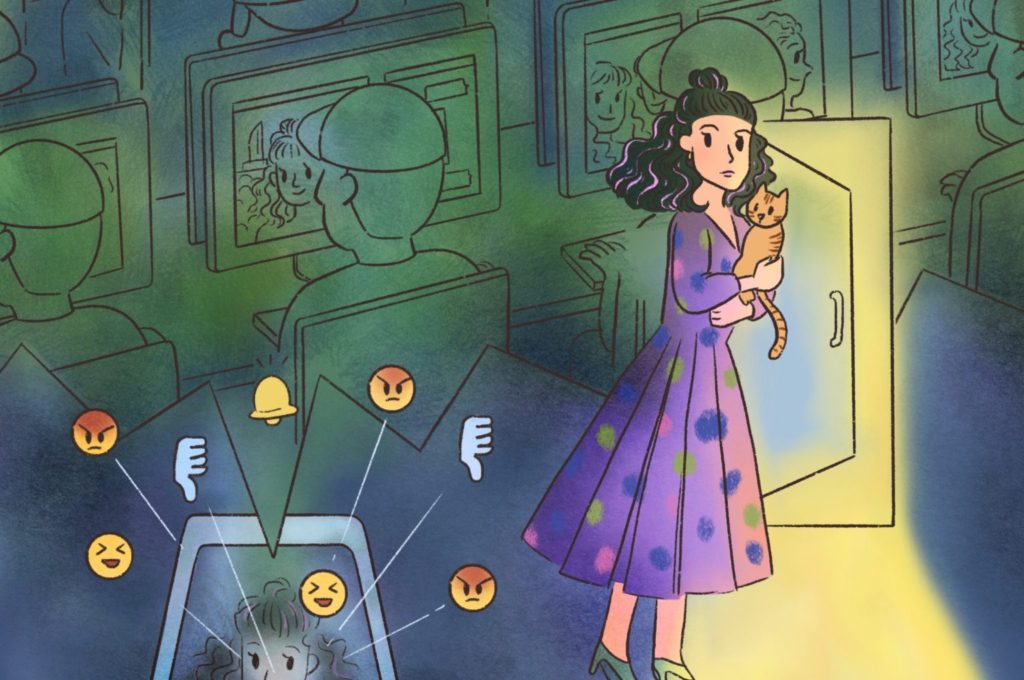
TECHNOLOGY-FACILITATED GENDER-BASED VIOLENCE
Just like the offline world, power dynamics impact how people engage with each other online. Some people online use the internet to spread hate, misogyny, homophobia, biphobia and transphobia.
The term ‘technology-facilitated gender-based violence’ (TfGBV) is used to describe acts that use technology to cause harm to women, girls and LGBTI people. It’s defined as any act of violence, or threats thereof, perpetrated by one or more individuals that:
- Is committed, assisted, aggravated and/or amplified in part or fully by the use of information and communication technologies or digital media;
- Disproportionately impacts women and girls but can also impact other people based on their real and/or perceived sexual orientation, gender identity and/or expression; and
- Causes physical, psychological, economic, and sexual and reproductive harm.
Examples of TfGBV which rely on technology but do not necessarily happen online can include spyware, non-consensual video and image recording or sharing through Bluetooth and non-internet-based devices.
For example, in 2024 we documented seven cases of women from Yemen who were subjected to technology-facilitated gender-based violence on Facebook, including blackmail, violations of their right to privacy and harassment involving non-consensual sharing of images or sensitive information.
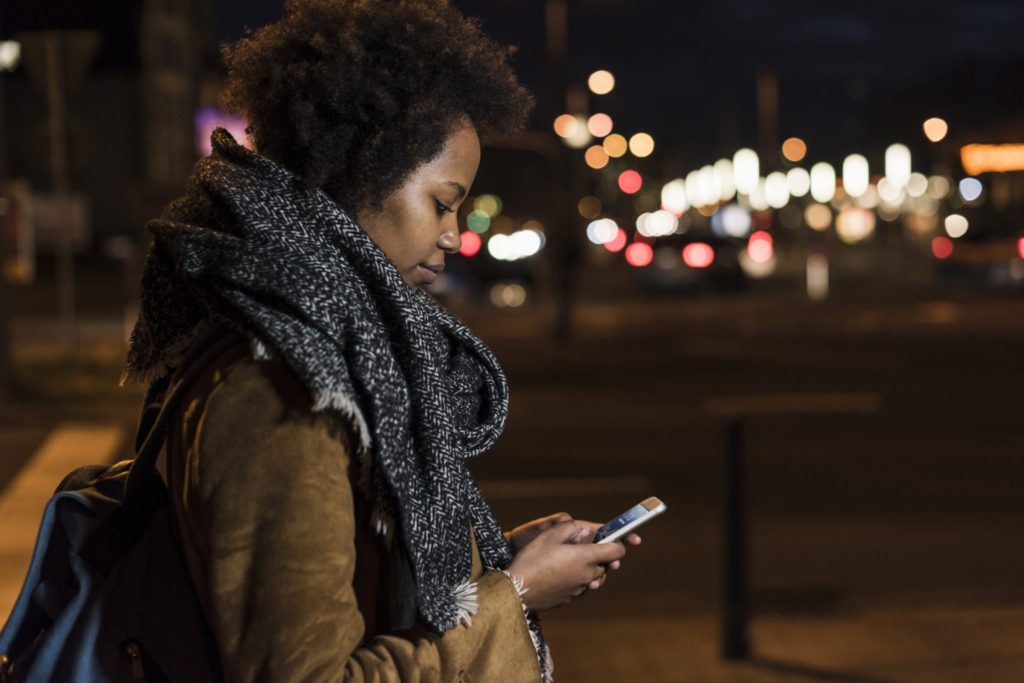
CASE STUDY: UGANDA
In 2023, the Ugandan parliament passed a bill that many refer to as the Anti-Homosexuality Act. Since it was passed, LGBTQ people in Uganda are subjected to increasing repression. As a result, many LGBTQ people and activists rely on digital spaces to foster a sense of community. They also use digital spaces to connect with others, share information, including about sexual health services and protect their rights.
However, these digital spaces are now at risk due to the prevalence of technology-facilitated gender-based violence. Our researchers have documented cases of various forms of TfGBV including;
- doxing,
- outing,
- threats of violence,
- blackmailing,
- disinformation
- Non-consensual accessing of data of LGBTQ persons and organizations
These attacks have been detrimental to people’s everyday life. In many instances, the online threats have translated into offline harms, including both verbal and physical attacks. They have seriously harmed people’s mental and physical health, their livelihood and housing, social lives, and ability to freely express themselves or engage in activism.
Technology reproducing gender inequality
These forms of violence exist on a continuum of gender-based violence that is perpetrated against women, girls and LGBTI people, and is rooted in and reproduces gender inequality, power asymmetry and harmful gender norms and stereotypes.
While technology-facilitated gender-based violence impacts all women, girls and LGBTI people, those facing intersectional forms of discrimination and systemic marginalisation, including on the basis of race, disability, religion, caste, ethnicity, age, class, rural and urban setting, among others, may face both unique and compounded forms of technology-facilitated online gender-based violence.
In 2018, we found that women of colour, (Black, Asian, Latinx and mixed-race women) were 34% more likely to be mentioned in abusive or or repeated content that was hurtful or hostile than white women. Black women were disproportionately targeted, being 84% more likely than white women to be mentioned in abusive or repeated hurtful or hostile tweets.
All forms of gender-based violence, whether online or offline, are human rights abuses and are regarded as such under international law.
Some common forms of technology-facilitated gender-based violence include:
- Doxing: Doxing involves revealing personal information or identifying documents or details online about someone without their consent, typically with malicious intent. This can include a person’s home address, real name, children’s names, phone numbers or email address.
- Threats of violence: Direct and indirect threats of violence, such as physical or sexual threats, which can sometimes quickly spill over into the offline world.
- Video and image-based abuse: Using images or videos to threaten and harass, including sharing of non-consensual intimate images, taking non-consensual intimate images and videos of a person, deepfakes or morphed images that depict survivors in a sexually explicit manner or sending unsolicited sexual images or messages to another person.
- Online harassment or cyberbullying: Using online platforms to intimidate, threaten, cause distress, silence and target women, girls and LGBTI people using abusive comments or images over a short or coordinated period of time.
- Hateful and abusive speech: Using intentionally derogatory and offensive language with reference to a person or a group on the basis of their identity, including their gender and/or sexual orientation, which dehumanizes and encourages violence against women, girls and LGBTI people.
- Outing: Disclosure of a person’s sexual orientation and/or gender identity without their consent and in violation of their right to privacy.
- Digital blackmail: Stealing someone’s digital information and using it to coerce a person for various things, including money, intimate images and photos or to perform sexual acts.
- Targeted surveillance: Surveillance that targets a specific person or an organization, such as using spyware, to access and monitor their activities and private data. Women, girls and LGBTI activists often pay a higher price when their privacy is breached because of, for example, the different ways their private data could be weaponised against them.
These are only some forms of technology-facilitated gender-based violence since it can be defined in different ways and because technology and user behaviours are constantly evolving.
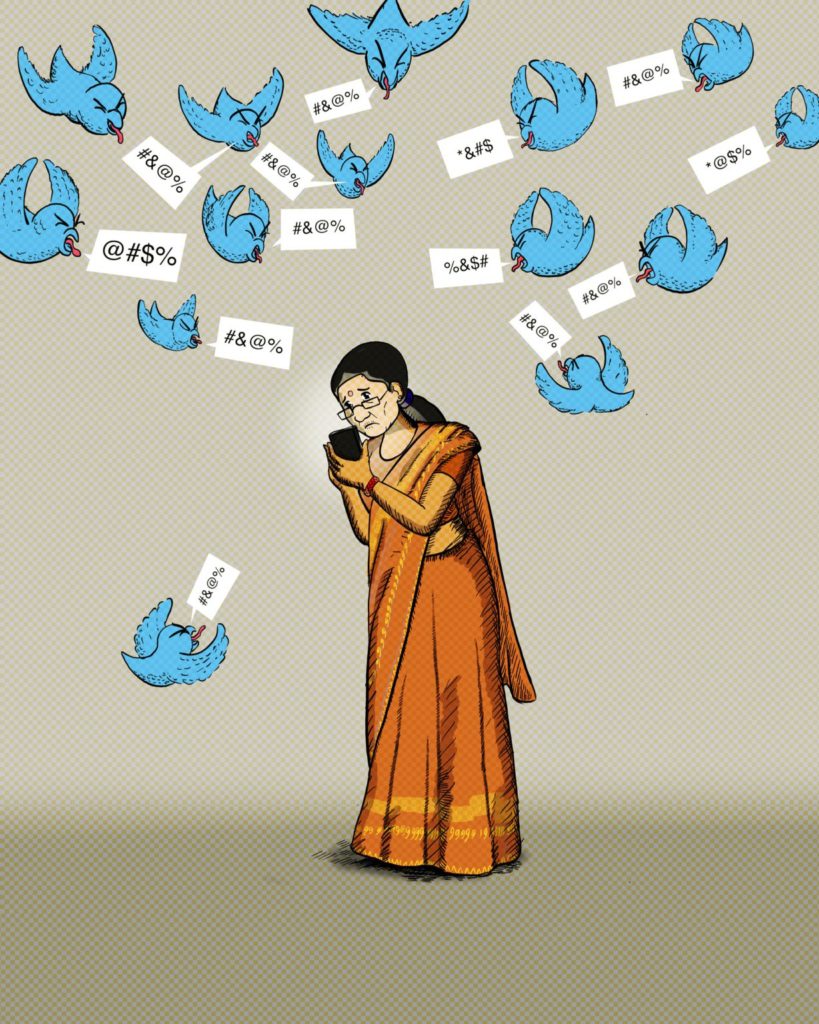
The dangers of technology-facilitated gender-based violence

When women, girls and LGBTI people are targeted with technology-facilitated gender-based violence, it is more dangerous for them to engage and participate in online conversations and benefit from digital technologies.
It can also lead to severe psychological harms that impact their mental health. This includes conditions like post-traumatic stress disorder, paranoia, depression, and anxiety, which can lead to self-harm. For instance, a higher proportion of transgender and gender-diverse people reported that being targeted online very negatively impacted their desire to live.
The intensely pervasive and consuming nature of gender-based violence online leads many people, including human rights defenders, to isolate themselves from online communities altogether. This makes online violence not only an issue of discrimination but also something that infringes on people’s freedom of expression and their political participation.
Being a target of technology-facilitated gender-based violence can also result in economic harms as women, girls and LGBTI people are forced to minimize their digital footprint. It also affects their access to a range of information and services and can lead to attacks and instances of violation and abuse in the offline world as well.
Digital technology is really important for activism, but at the moment, it’s not a safe space for LGBTI persons and women at all
Nitchakarn Wongwiset, Non-binary human rights defender and activist
CASE STUDY: TOXIC TWITTER
In 2018, we launched a campaign demanding that Twitter take action against the widespread violence against women and LGBTI people across the platform. It followed research that demonstrated the harmful impact of violence and abuse against women on Twitter, including leading women to self-censoring what they post, limiting or changing their interactions online, or at times driving women off the platform altogether and causing chilling effect on women speaking out.
We interviewed influential people like game designer Zoe Quinn and UK politician Diane Abbott who spoke about how being the target of online violence impacts their lives, career and mental health.
The campaign provided a list of specific actions Twitter could take improve their monitoring and reporting practices and crackdown on online violence.
SILENCING DISSENT WITH ONLINE VIOLENCE
We all have the right to freedom of expression, online and offline.
Online spaces like social media can breathe life and power into activism and social justice. Social media democratises the way we share and find information and amplifies voices that might otherwise be ignored. It also creates online spaces for protest where people can connect and assemble as a digital collective, bringing people together in ways that wouldn’t be possible otherwise.
But technology-facilitated gender-based violence poses a serious threat to expression and activism by women, girls and LGBTI people.
It can feel impossible to continue to push for change when you are the victim of smear campaign or if you discover that your government is using spyware to monitor your activities or you are repeatedly facing gender-based harassment online.
THE CHILLING EFFECT
These experiences force women, girls and LGBTI activists and human rights defenders to leave or reduce their engagement in online spaces. And in a society where a lot of public discourse and communication happens online, when you decide to limit your online engagement, you also limit your activism and your access to information.
Often, this silencing effect is intentional, particularly when states or governments are the perpetrators. They deploy tactics with the specific intent of scaring people into silence. Our interviews with human rights defenders who have experienced online violence mirrors what many experts call ‘the chilling effect’.
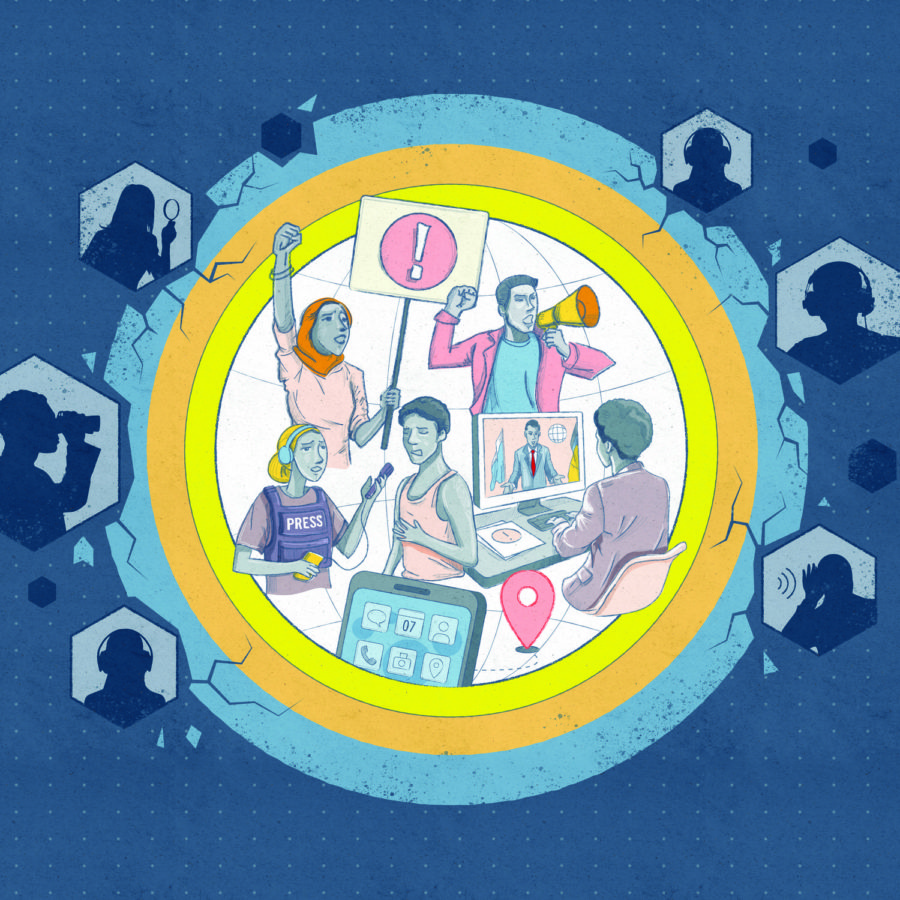
CASE STUDY: THAILAND
After speaking to dozens of women and LGBTI human rights defenders in Thailand, we found that state and non-state actors have routinely weaponized online spaces to attack, intimidate and discredit women and LGBTI human rights defenders.
Activists were targeted with surveillance, including Pegasus spyware and attacks on their Facebook accounts. We also identified four common methods of online harassment against the HRDs:
- the use of hateful and abusive speech
- targeted smear campaigns
- doxing
- threats of gendered violence
Ultimately, the use of technology-facilitated gender-based violence against activists in Thailand resulted in a chilling effect.
Activists and human rights defenders told us how their mental health was severely impacted and that they were unable to seek accountability. As a result, women and LGBTI people reported feeling deterred from fully expressing themselves or their opinions and engaging in activism in digital spaces. This chilling effect was felt not just by individuals who were directly targeted by either surveillance or online harassment, but also by other people in the groups they operated in.
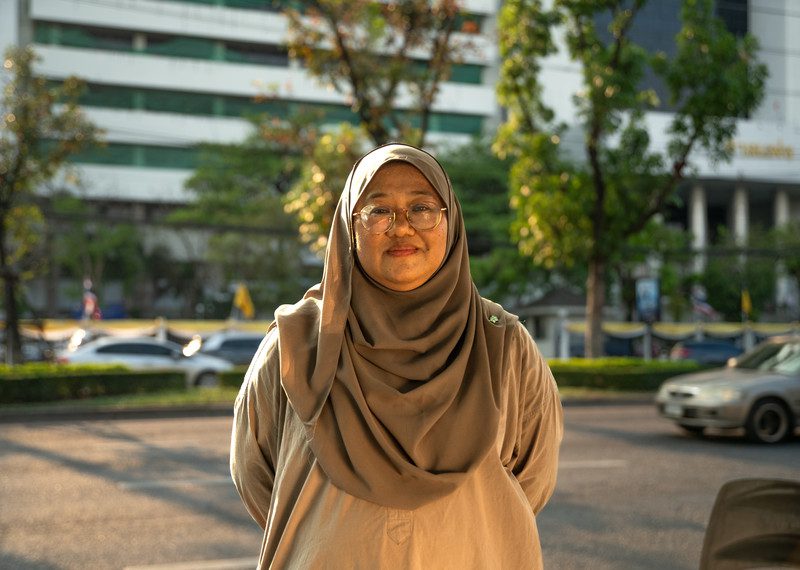
FREEDOM OF ONLINE EXPRESSION IN THAILAND
The military coup in 2014 marked the beginning of the Thai authorities’ prolonged efforts to silence human rights defenders, activists, journalists, and opposition politicians — especially in the online space. Many had hoped that the March 2019 general election would end the crackdown targeting those who criticized the government and the monarchy online, as well as anyone whose views differed from what the government deemed acceptable. However, during the first year of Prime Minister General Prayut Chan-o-cha’s elected government, Thailand showed no signs of easing restrictions on online freedom of expression. Instead of discontinuing prosecutions over content critical of the government’s performance, authorities continued to bring charges, while also intimidating and threatening internet users simply for exercising their right to peaceful online expression.
Since the March 2019 election, the authorities have continued to pursue criminal cases against individuals criticizing the performance of the government — whether directed at the police, military, or the Election Commission of Thailand — with such critics facing prison sentences and heavy fines. In many cases, the government has targeted prominent individuals in criminal lawsuits to send a warning to other internet users that the Thai authorities will not tolerate dissenting opinions. This strategy is intended to create a climate of fear and deter people from posting or sharing content about the government’s actions that the state labels as “false information.”
Following the outbreak of COVID-19, Prime Minister Prayut declared a state of emergency in March 2020, significantly increasing restrictions on freedom of expression and peaceful assembly. The government immediately invoked the 2005 Emergency Decree on Public Administration in Emergency Situations to grant officials the power to censor COVID-19-related content deemed “false information” or potentially causing public panic.
Vague and ambiguous provisions in problematic laws continue to enable the government to intimidate critics, such as the Computer Crimes Act, Section 116 of the Criminal Code (sedition), and Section 112 of the Criminal Code (lèse-majesté).
In addition, the government treats defamation as a criminal offense, providing yet another tool for officials to suppress dissent. Prosecutions since March 2019 demonstrate a growing trend toward controlling online spaces to suppress the exercise of free expression. Authorities have sought new ways to further restrict online speech, while also stifling criticism of the government’s handling of the COVID-19 pandemic.
Officials have used laws to prosecute human rights defenders and even ordinary people for exercising their right to freedom of expression. They have also used legislation to block, restrict, and control activities related to the public’s exercise of this right — for example, by invoking the Computer Crimes Act, which gives officials a channel to prosecute anyone who criticizes state agencies or officials. The Cybersecurity Act, enacted in February 2019, may also permit the government to search and seize digital data and devices in cases deemed potential threats to national security, enabling the state to monitor internet use and access private data — such as personal communications — without a court warrant.
In November 2019, the government launched the state-run Anti-Fake News Center, raising concerns that authorities view themselves as the sole arbiters of what constitutes “fake news” in online media. While the agencies involved in the center have taken action to curb the spread of “false information” on certain key issues, they have failed to address COVID-19-related misinformation or respond to complaints from individuals targeted by hate speech and disinformation campaigns. Although the government claims to be making the internet safer, these efforts have excluded protection for those with dissenting opinions.
Authorities have also increased attempts to monitor civil society workers, public figures, and other individuals under public scrutiny. Methods have included sending Facebook friend requests, phishing links designed to harvest personal information, and state-led information operations (IO).
In late 2018, the government revealed plans to establish an “Army Cyber Center” as part of a cyberwarfare approach. This cyber unit has reportedly been used to monitor social media and online communications of civil society actors to identify dissidents and may have deliberately spread disinformation to harass human rights defenders on social media — or even pursued legal action against ordinary people exercising their right to freedom of expression.
The UN Special Rapporteur on the promotion and protection of the right to freedom of opinion and expression has noted that the Thai government has increasingly sought to control information, especially online, through the enforcement of vague laws to restrict access to certain content.
The UN Human Rights Committee — which oversees the implementation of the International Covenant on Civil and Political Rights (ICCPR) — has stated: “Restrictive measures must conform to the principle of proportionality; they must be appropriate to achieve their protective function; they must be the least intrusive instrument amongst those which might achieve the desired result; and they must be proportionate to the interest to be protected.”
WHAT IS AMNESYU DOING TO SYOP ONLINE AND OTHER TECHNOLOGY-FACILITATED VIOLENCE?
We are actively campaigning for an end to technology-facilitated gender-based violence, including online violence, everywhere. Our researchers speak to people around the world so that our campaigns and recommendations are rooted in real experiences.
As a global movement, we organise campaigns that teach people about the human rights implications of technology-facilitated gender-based violence. This includes lobbying governments and technology companies to take more clear and direct action to protect people’s rights online, especially women, LGBTI people and activists. We support civil society with building and protecting their digital resilience too.
Through our new global Make It Safe Online campaign, we are calling on governments around the world to take action and protect the right to protest for women, girls and LGBTI people.
We wholeheartedly believe in a future where online spaces can be a true force for good, where people can feel safe to freely participate and express themselves without fear of violence.
But we need your help to make that vision a reality.

AMNESTY INTERNATIONAL’S CALLS TO THE THAI GOVERNMENT ON FREEDOM OF ONLINE EXPRESSION
- End regressive measures, particularly the use of criminal laws against individuals peacefully criticizing the government — especially the Computer Crimes Act, and Sections 112, 116, and 326–333 of the Criminal Code, as well as the Emergency Decree.
- Amend or repeal laws that restrict the exercise of online freedom of expression and immediately end criminal proceedings against critics.
- If the government wishes to curb the spread of “fake news,” it should hire credible and independent external bodies to verify online content and end the role of the Ministry of Digital Economy and Society in fact-checking.
- Establish a reform body to improve operations in multiple areas, in line with Thailand’s obligations under the ICCPR to respect freedom of expression — including online expression.
- Take greater action to fully and effectively respect, protect, promote, and fulfill the right to freedom of expression, including online.
- End all criminal proceedings against human rights defenders, activists, journalists, politicians, and others targeted solely for peacefully exercising their right to freedom of expression, and immediately and unconditionally release those detained.
- Stop prosecuting anyone solely for peacefully exercising their human rights, including online freedom of expression.
- End the involvement of the Ministry of Digital Economy and Society in the Anti-Fake News Center and fact-checking operations, and establish neutral, independent external bodies to verify complaints about potentially harmful information.
- Create a safe and enabling environment for internet users to exercise their human rights peacefully, including freedom of expression, without intimidation, harassment, arrest, or prosecution.

